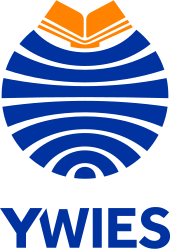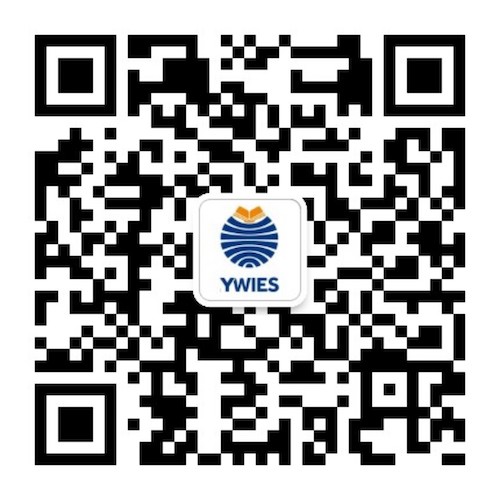Go Back
News
Wechat News
DSE Programme Episode 16
Wechat News
08 Jul, 2025
15 : 34
As the Hong Kong Diploma of Secondary Education Examination (DSE) in April and the Joint Entrance Examination for Overseas Chinese Students from Hong Kong, Macau, and Taiwan in May conclude each year, countless students and parents grow increasingly anxious as the results release day approaches. For students with Hong Kong permanent residency in particular, these two examinations represent important and highly regarded pathways to higher education, especially at mainland Chinese universities.
Although both exams offer Hong Kong students opportunities to study at Mainland universities, they differ significantly in exam content, difficulty, admission rules, future prospects, and international recognition. Choosing between these two seemingly similar but fundamentally different paths is a real challenge for many families.
This article aims to provide an in-depth comparison and analysis of the Overseas Chinese Exam and the Hong Kong DSE. We will examine their historical backgrounds, exam features, relative difficulty, advantages, and admission trends. Through this comprehensive comparison, we hope to help students and parents better understand the strengths and weaknesses of each path and make informed decisions for future academic planning.
Historical Background
The NJCE (full name: "National Joint College Entrance Examination for Overseas Chinese, Hong Kong, Macau, and Taiwan Students") was established in 1985, making it nearly 40 years old. It was initially designed to strengthen ties between overseas Chinese youth and the Chinese Mainland while providing them with higher education opportunities.
On the other hand, the HKDSE mainland admission scheme was introduced in the 2012/13 academic year to broaden Hong Kong students' university options and promote educational exchange.
Exam Structure and Difficulty
👇NJCE
💁Subjects
-
Arts stream: Chinese, Mathematics, English, History, Geography
-
Science stream: Chinese, Mathematics, English, Physics, Chemistry
💁Language
Primarily Chinese (except for the English paper)
💁Difficulty
-
Mathematics and science subjects are comparable to the mainland Gaokao but with fewer questions.
-
Arts subjects focus more on foundational knowledge.
👇HKDSE
💁Subjects
-
4 core subjects: Chinese, English, Mathematics, Citizenship and Social Development.
-
2-3 elective subjects (e.g., Physics, Economics)
💁Language
Bilingual (Chinese and English, with some subjects offering English-only papers)
💁Difficulty
-
English is notably more challenging (close to IELTS level).
-
Mathematics and science subjects are less difficult than the NJCE but cover a broader syllabus.
University Admission Trends and Advantages
👉NJCE
-
Lower score requirements
The first-tier cutoff is around 400/750, though some universities set higher thresholds (e.g., 465 for arts, 510 for science).
-
Rising applicant numbers
2023: 7,238 → 2024: 10,320 (+42.6%) → 2025: 11,882 (+15.1%).
-
Increasing competition
The undergraduate admission rate dropped to 58.3% in 2024 (from 70.6% in 2023), but it remains higher than the mainland Gaokao.
-
Wider university options
Over 300 mainland universities participate, including top institutions like Tsinghua and Peking University.
👉HKDSE
-
Global recognition
Accepted not only by mainland universities but also by institutions in Hong Kong and overseas (e.g., UK, Australia).
-
Policy support
Eligible students can apply for the "Mainland University Study Subsidy Scheme" to reduce financial burdens.
-
Flexible admission
The minimum requirement for mainland universities is "332A" (Chinese & English at Level 3, Mathematics at Level 2, Citizenship & Social Development "Attained"), with some programs accepting "221A".
👇Key Differences
💁Recognition
-
NJCE qualifications are treated the same as mainland Gaokao results.
-
HKDSE is internationally recognized, offering more diverse university options.
💁Preparation resources
-
NJCE requires specialized tutoring (different from mainland textbooks).
-
HKDSE follows Hong Kong's local curriculum, making resources more accessible.
💁Policy benefits
-
NJCE students may apply for scholarships for overseas Chinese students.
-
HKDSE students can access mainland study subsidies.
Which One to Choose?
This is a highly personal decision that depends on factors like academic ability, interests, career goals, and family finances.
-
If the main goal is to enter top mainland universities (such as Tsinghua or Peking University), and the student is suited to traditional exam formats and concentrated preparation, The NJCE can be a cost-effective choice. Despite increased competition, it still offers an advantage over the regular mainland Gaokao for top schools.
-
If you want broader university options—including in Hong Kong or overseas—and the student excels in English and prefers exams focusing on understanding and application, the Hong Kong DSE offers more flexibility. DSE results can be used to apply to universities in Hong Kong, the Chinese Mainland, and worldwide.
💁Note
-
To apply to mainland universities through the DSE "Admission Scheme," students must hold a valid Hong Kong Permanent Identity Card and a Mainland Travel Permit for Hong Kong and Macao Residents.
-
Whichever path is chosen, early and thorough preparation is essential. The Joint Exam requires targeted subject revision, while the DSE demands adaptation to its unique exam style and assessment system.
As educational integration between Hong Kong and the mainland deepens, both NJCE and HKDSE provide valuable opportunities. Students and parents should consider academic strengths, long-term goals, and university preferences when making a decision.
-




